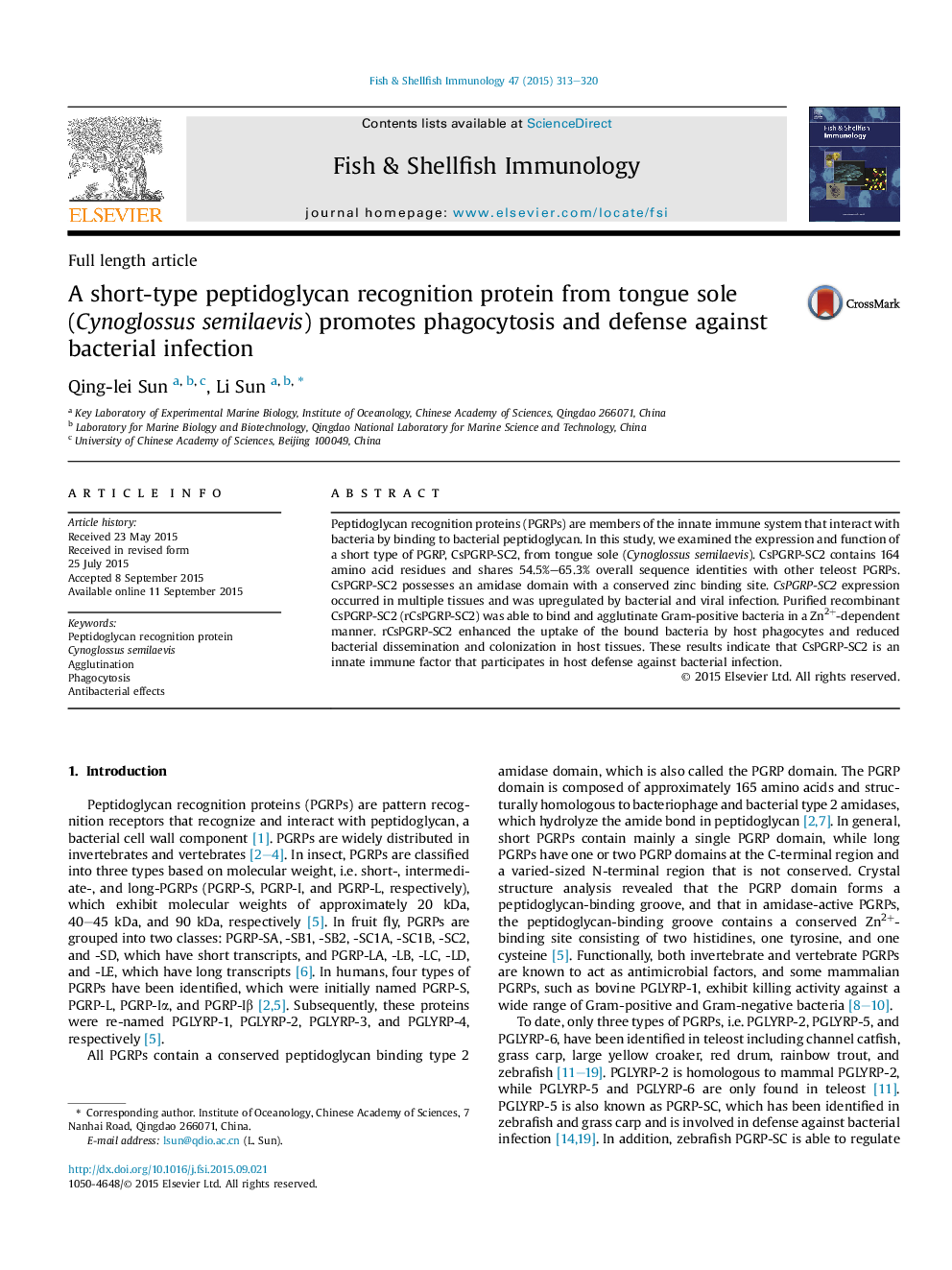| کد مقاله | کد نشریه | سال انتشار | مقاله انگلیسی | نسخه تمام متن |
|---|---|---|---|---|
| 2431095 | 1106744 | 2015 | 8 صفحه PDF | دانلود رایگان |

• CsPGRP-SC2 is a short peptidoglycan recognition protein with a zinc binding site.
• CsPGRP-SC2 was expressed in multiple tissues and stimulated by pathogen infection.
• rCsPGRP-SC2 exhibited zinc-dependent ability to bind and agglutinate bacteria.
• Binding of rCsPGRP-SC2 enhanced bacterial phagocytosis by host phagocytes.
• When present in vivo, rCsPGRP-SC2 inhibited bacterial invasion in host tissues.
Peptidoglycan recognition proteins (PGRPs) are members of the innate immune system that interact with bacteria by binding to bacterial peptidoglycan. In this study, we examined the expression and function of a short type of PGRP, CsPGRP-SC2, from tongue sole (Cynoglossus semilaevis). CsPGRP-SC2 contains 164 amino acid residues and shares 54.5%–65.3% overall sequence identities with other teleost PGRPs. CsPGRP-SC2 possesses an amidase domain with a conserved zinc binding site. CsPGRP-SC2 expression occurred in multiple tissues and was upregulated by bacterial and viral infection. Purified recombinant CsPGRP-SC2 (rCsPGRP-SC2) was able to bind and agglutinate Gram-positive bacteria in a Zn2+-dependent manner. rCsPGRP-SC2 enhanced the uptake of the bound bacteria by host phagocytes and reduced bacterial dissemination and colonization in host tissues. These results indicate that CsPGRP-SC2 is an innate immune factor that participates in host defense against bacterial infection.
Journal: Fish & Shellfish Immunology - Volume 47, Issue 1, November 2015, Pages 313–320